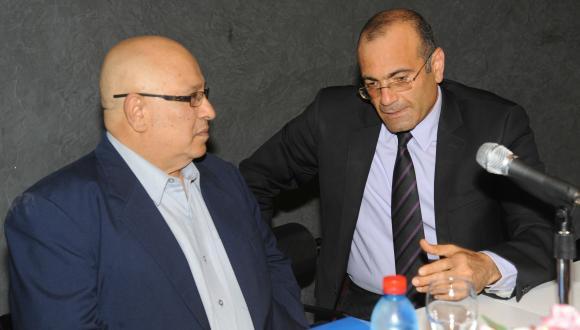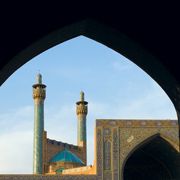John Gandel Symposium 2012
The annual Gandel Symposium was held at TAU's Cymbalista Synagogue and Jewish Heritage Center during the 2012 annual Board of Governors Meeting, providing the audience with a riveting analysis of the major events and forces shaping the contemporary Middle East. Founded by John Gandel of Australia, a TAU governor and honorary doctor, the 2012 symposium featured Meir Dagan, former Director of the Mossad, Prof. Shimon Shamir, a TAU faculty member and former Israeli Ambassador to Egypt and to Jordan, and Prof. Uzi Rabi, Director of TAU's Moshe Dayan Center for Middle Eastern and African Studies.
The symposium began with a general overview of the Middle East scene delivered by Prof. Rabi. Summarizing the region’s rapidly changing geopolitical atmosphere, he highlighted the fact that countries such as Turkey, Tunisia and Egypt – previously secular states that now have Islamist-dominated parliaments – are becoming increasingly more anti-Western and anti-Israel in rhetoric and strategic orientation.
Mr. Dagan focused on the Iranian nuclear program, stating that a military attack should be considered only as a last resort, while stressing that it should not be entirely taken off the table. Furthermore, he drew attention to Iran's domestic troubles vis-à-vis its minority populations such as the Kurds, and recommended amplifying these internal vulnerabilities in combination with economic pressure and the threat of military intervention in order to dissuade the Islamic Republic from crossing the nuclear weaponry threshold.
Prof. Shamir discussed the ramifications of the "Arab Spring," particularly the negative aspects, among them: social fragmentation, whereby tribal, religious and ethnic groups are rising and gaining power, threatening national cohesion; economic hardship caused by the downturn in tourism, foreign investment and industrial production; and the rise of Islamist forces amid the vacuum created by the removal of the previous regimes. Prof. Shamir further predicted that the ascendant Islamist movements will change the face of Arab societies throughout the Middle East and North Africa.
Concluding the 2012 symposium. Prof. Rabi opined that with recent events such as the overthrow of former President Hosni Mubarak in Egypt and a distinctly Islamist-leaning Turkey under Prime Minister Erdogan, Israel will be forced to pursue more creative strategies in order to protect its interests in the ever-shifting sands of Middle Eastern politics and security.






